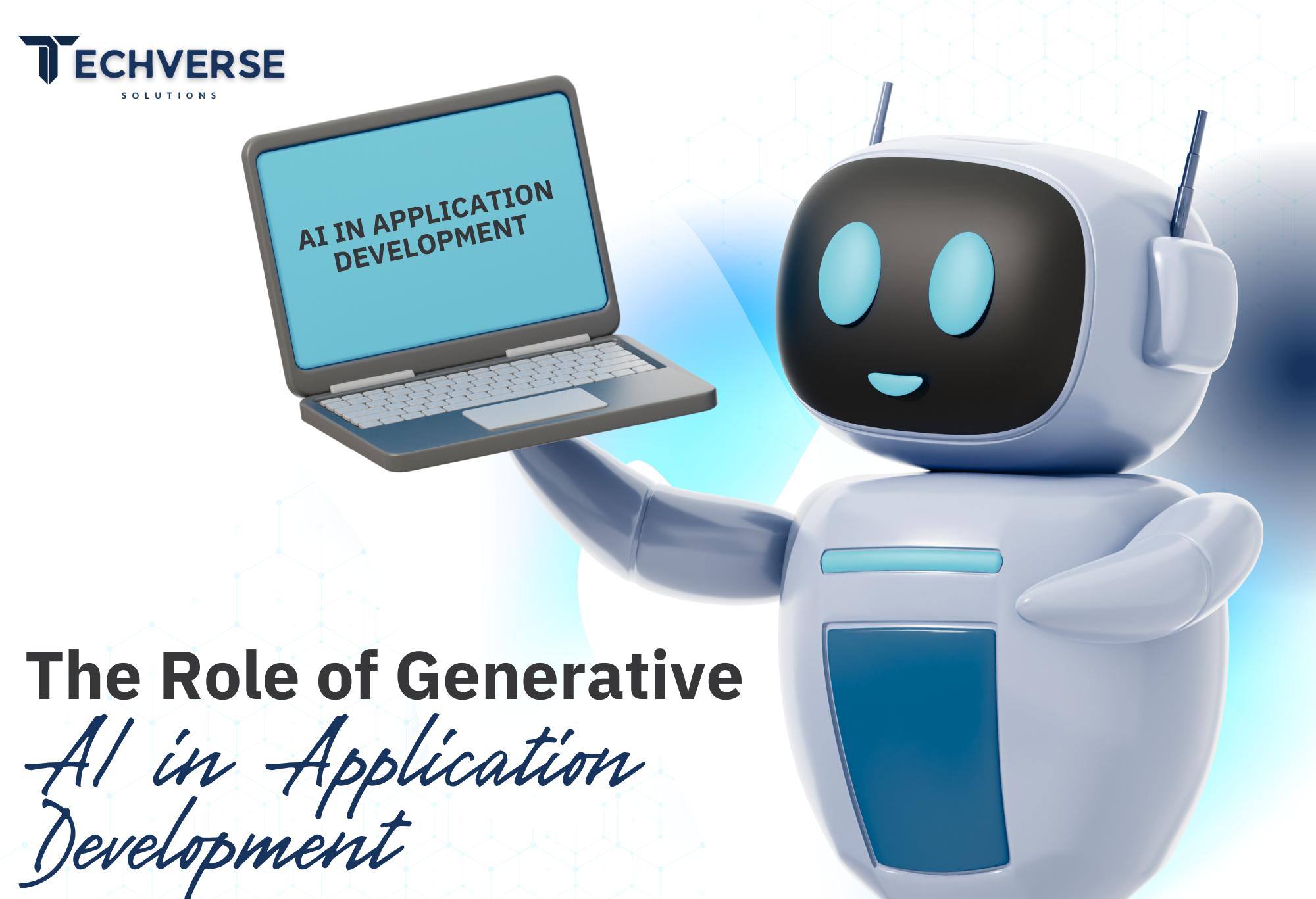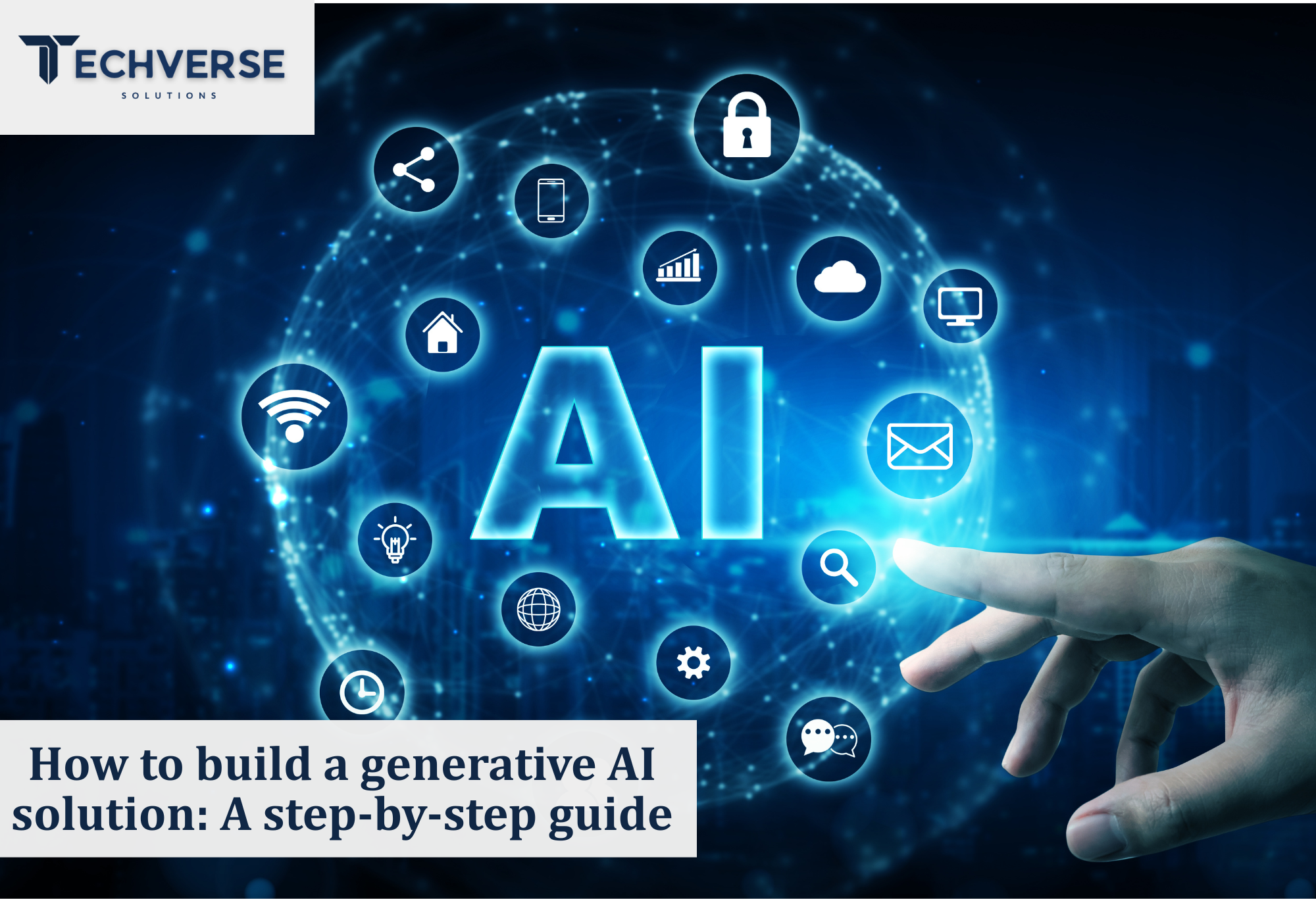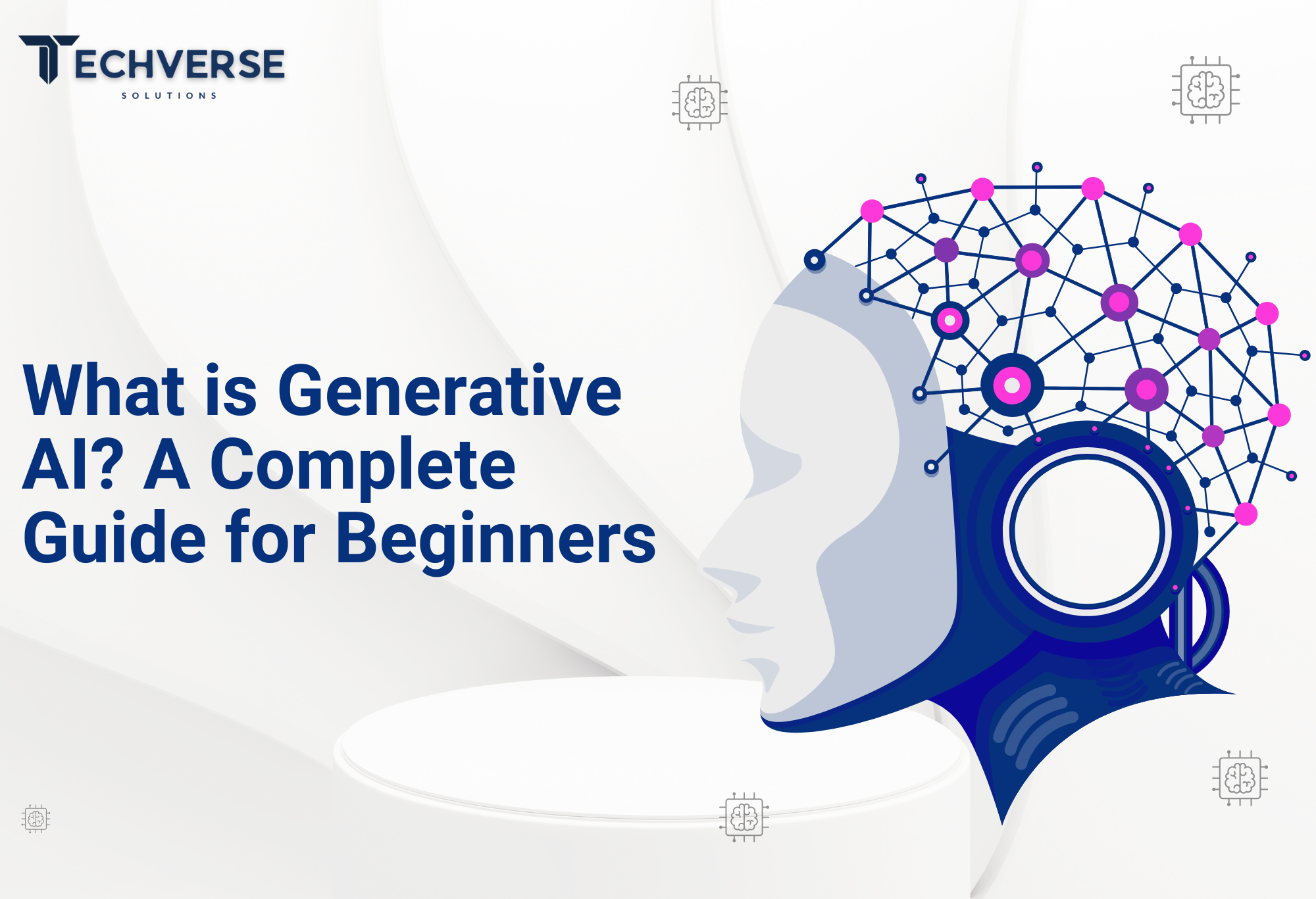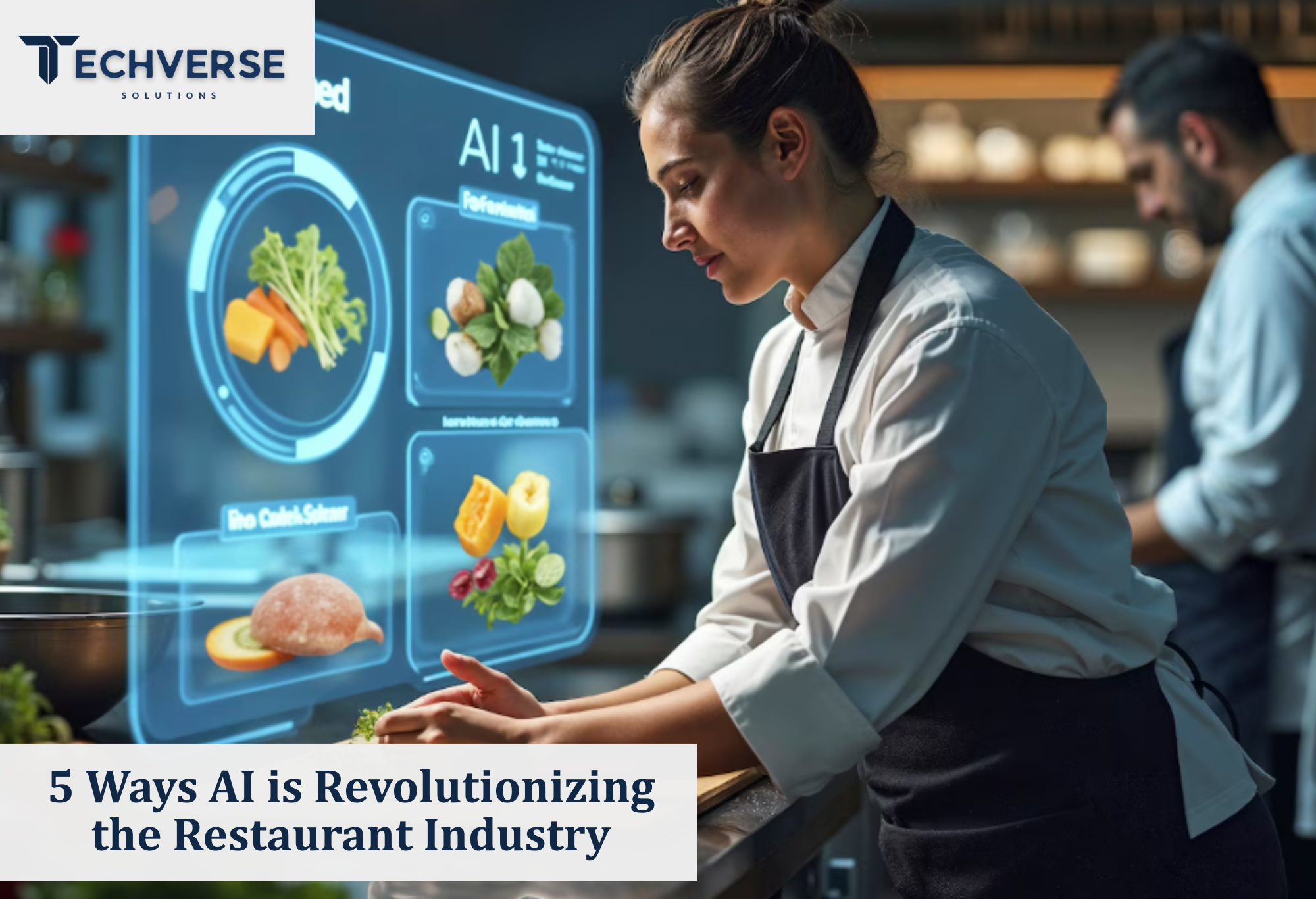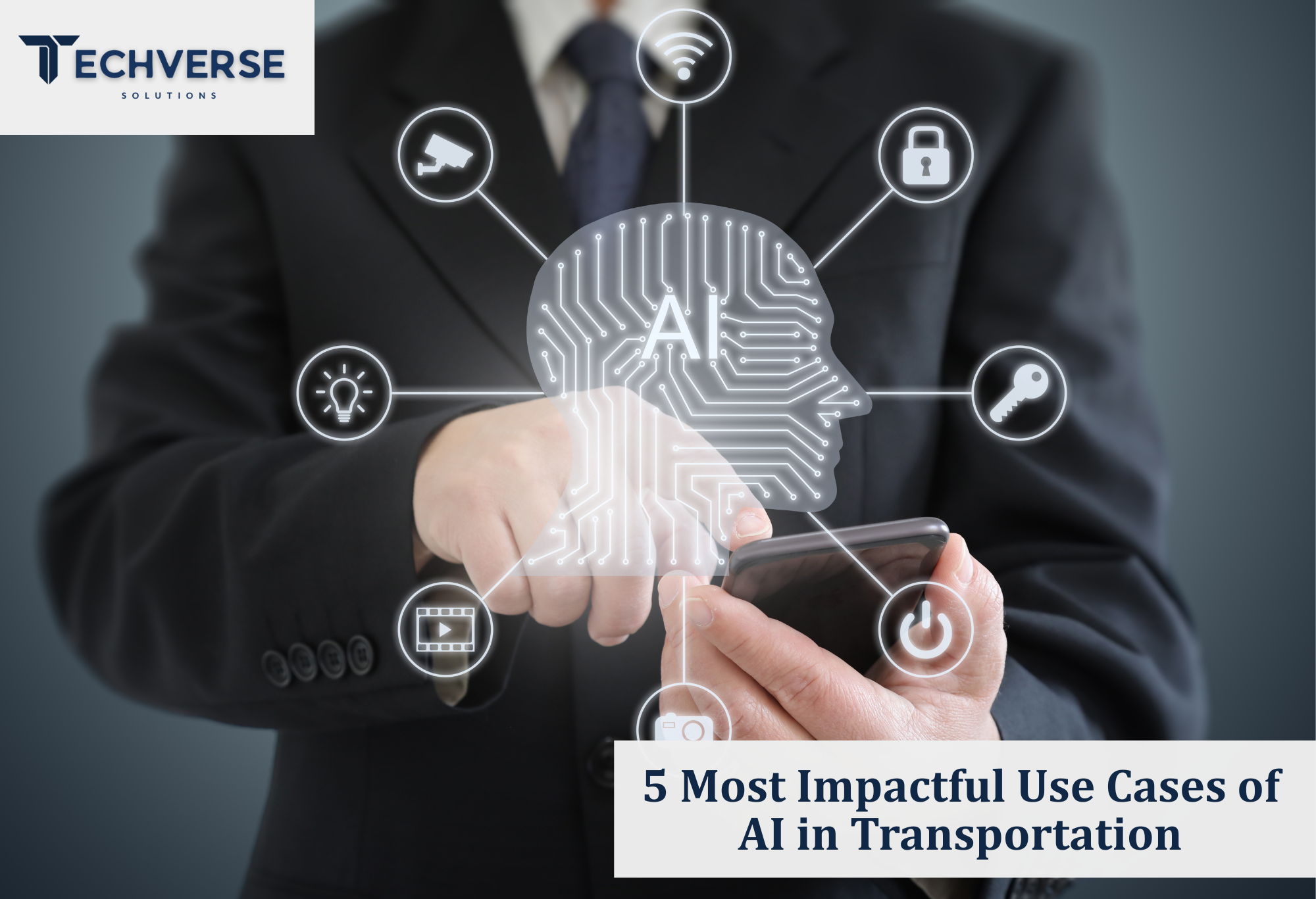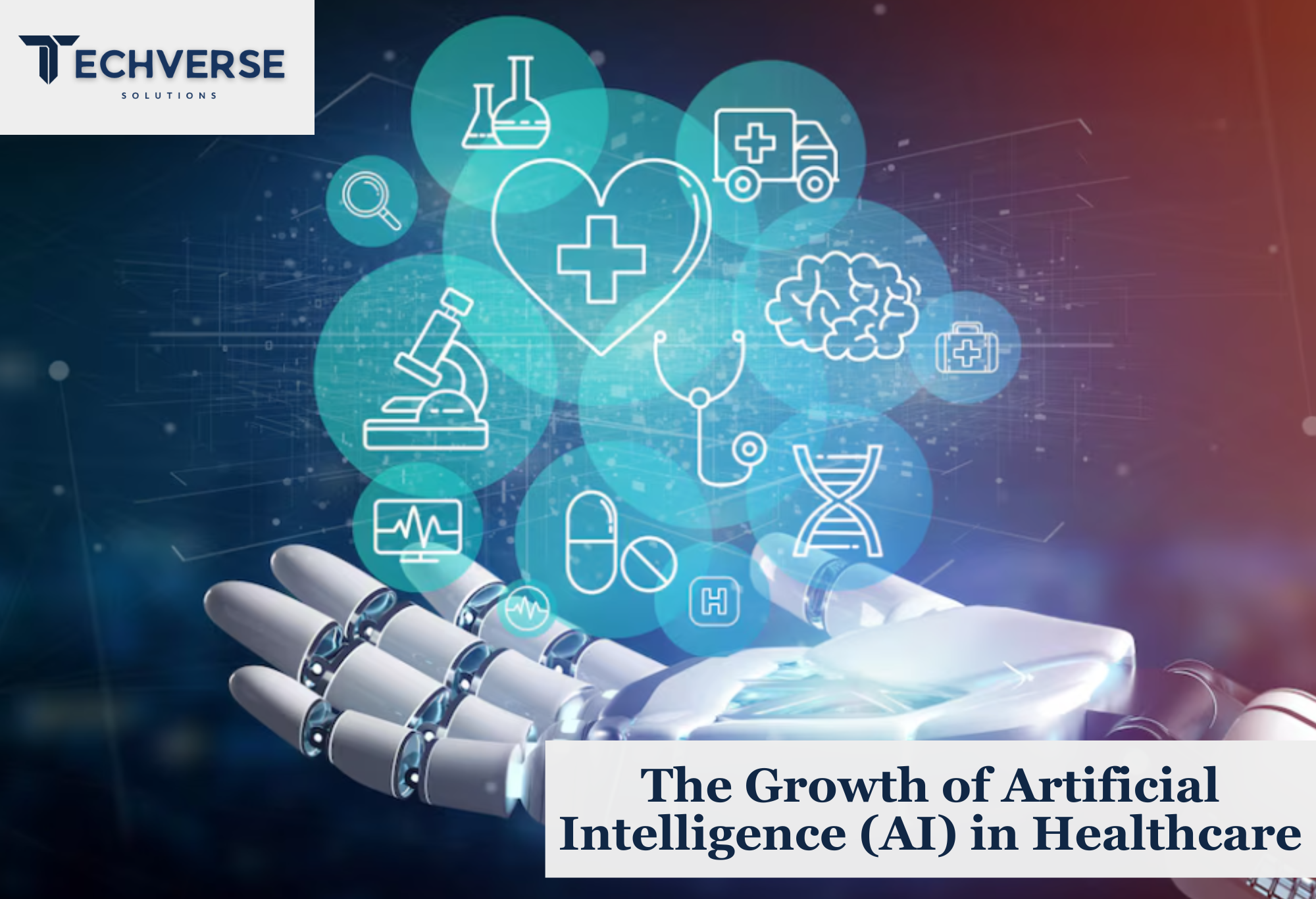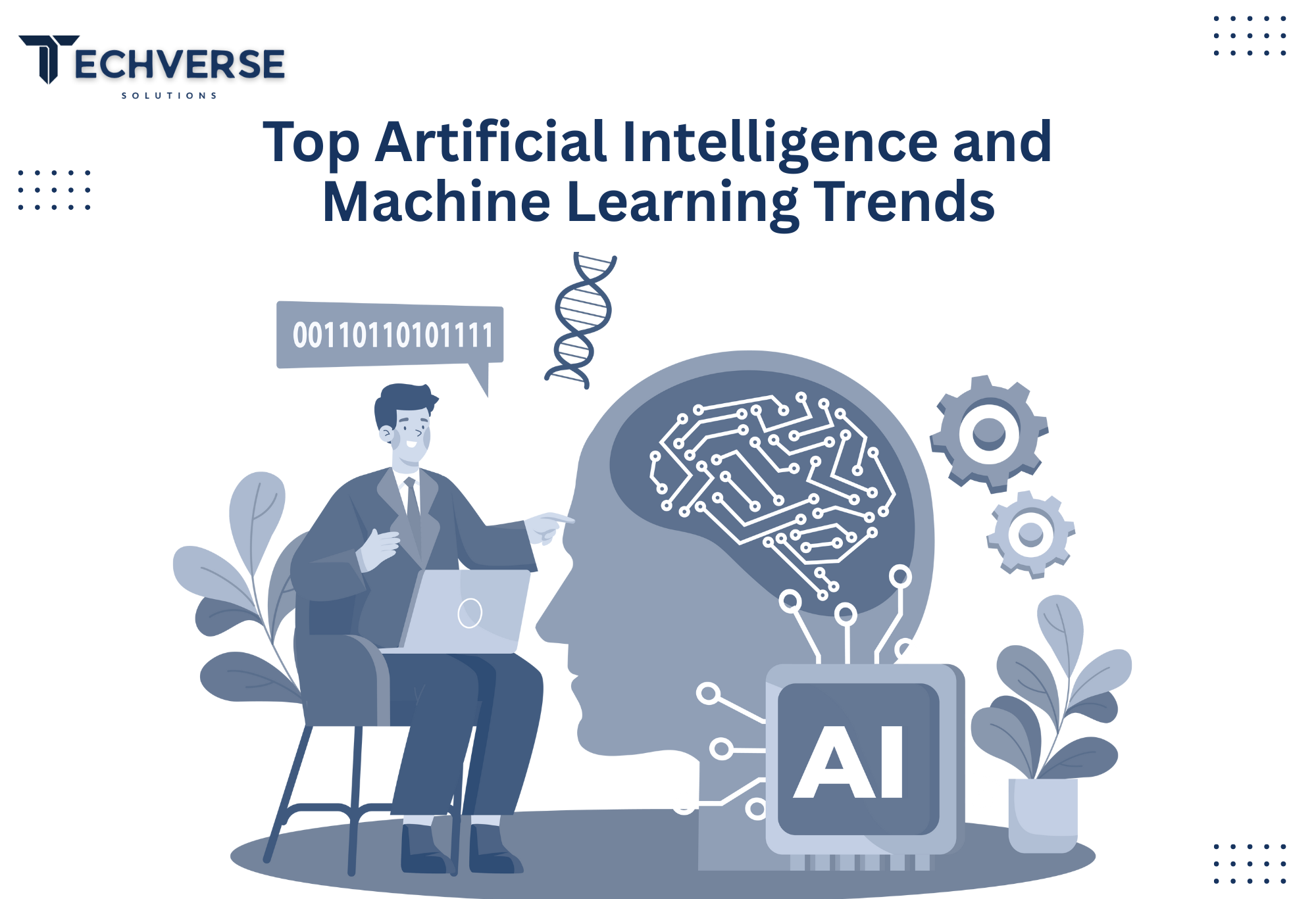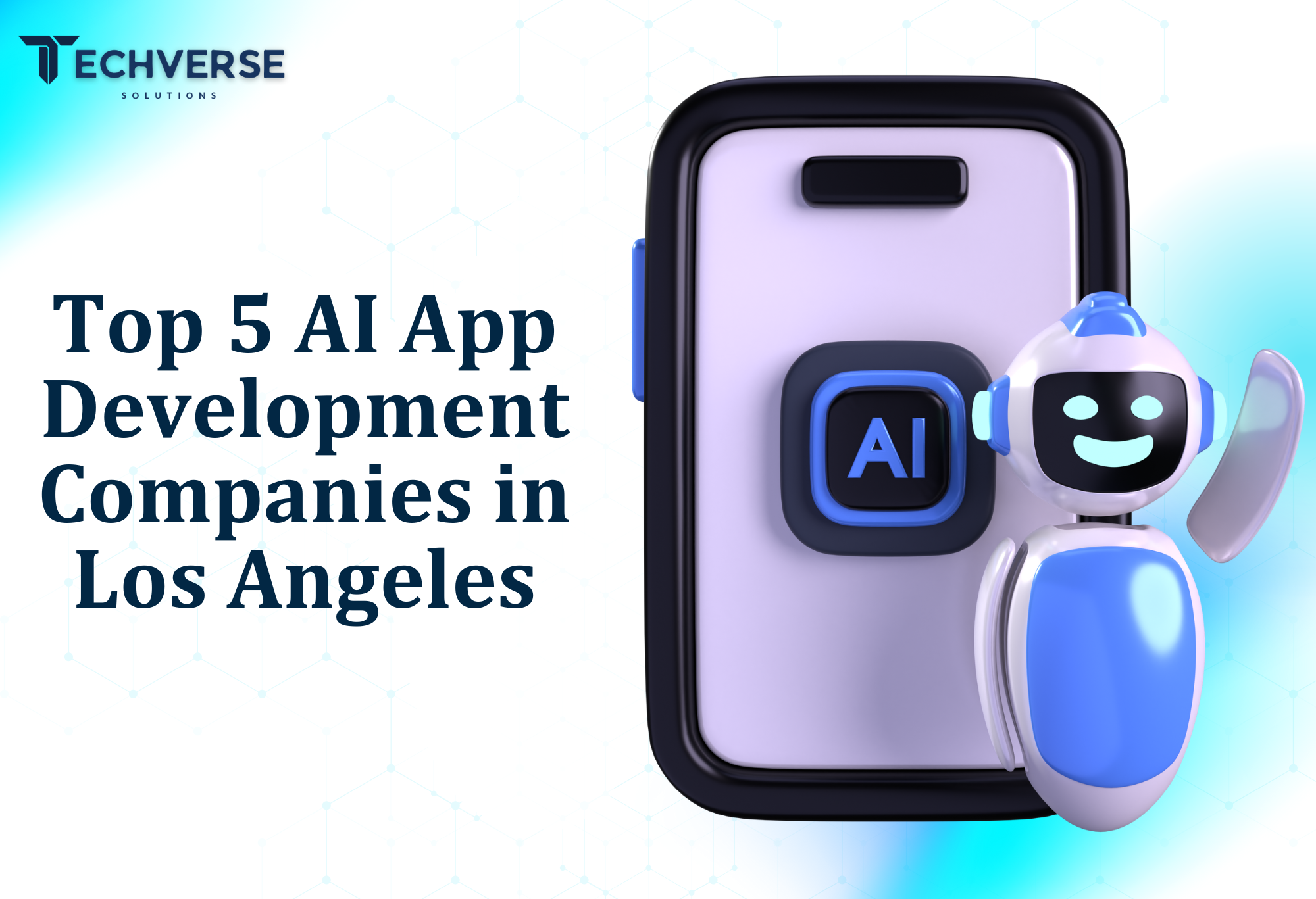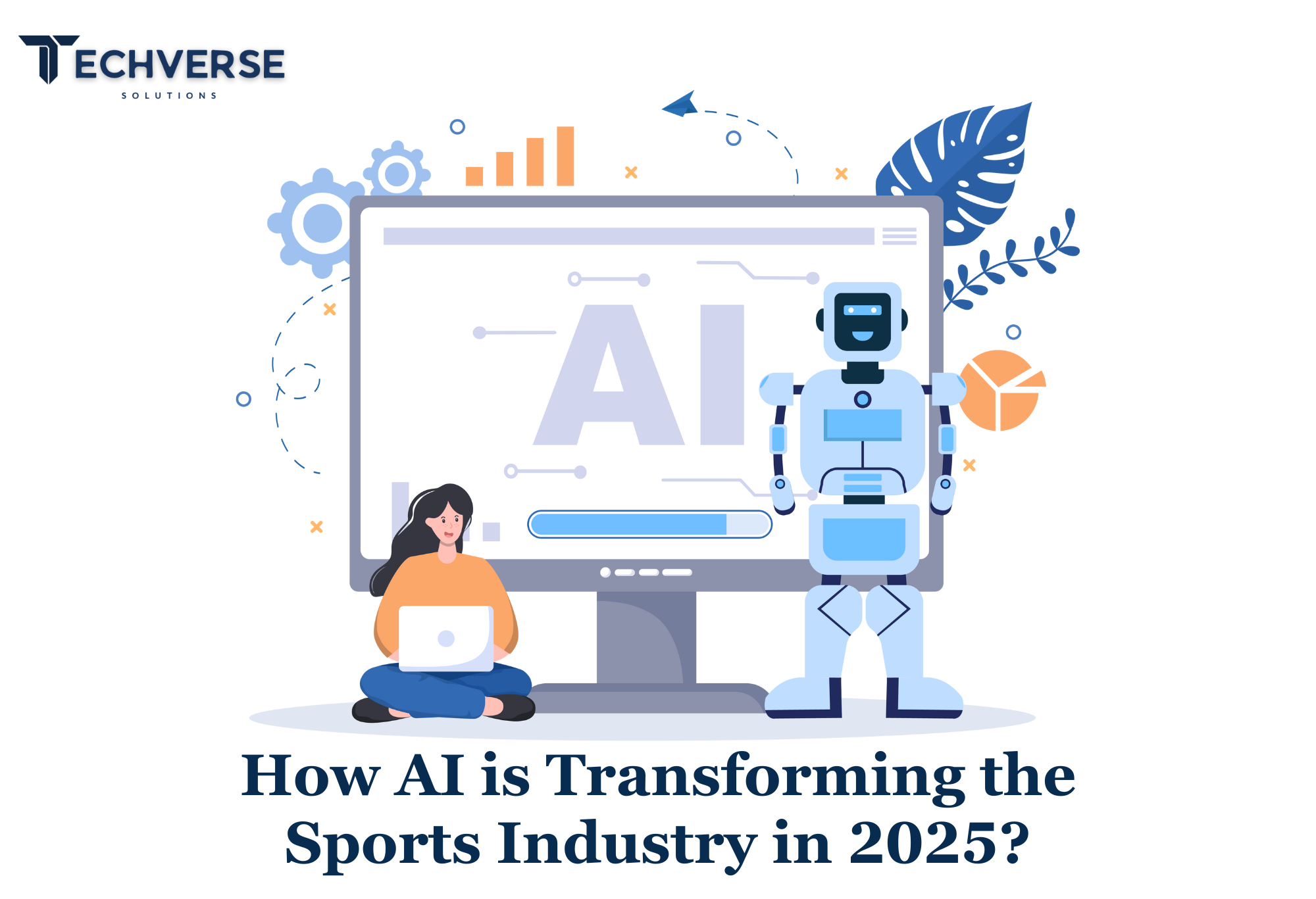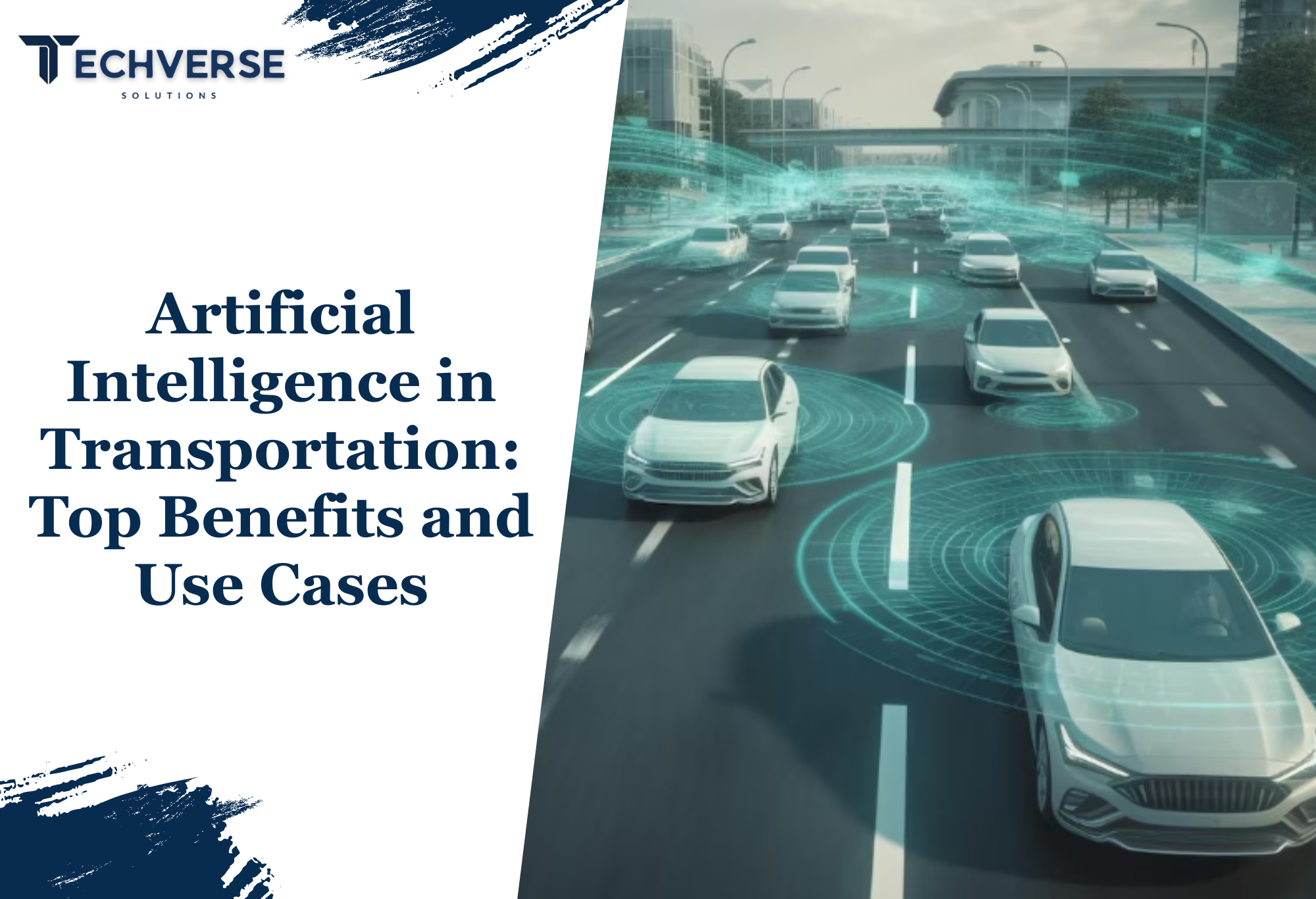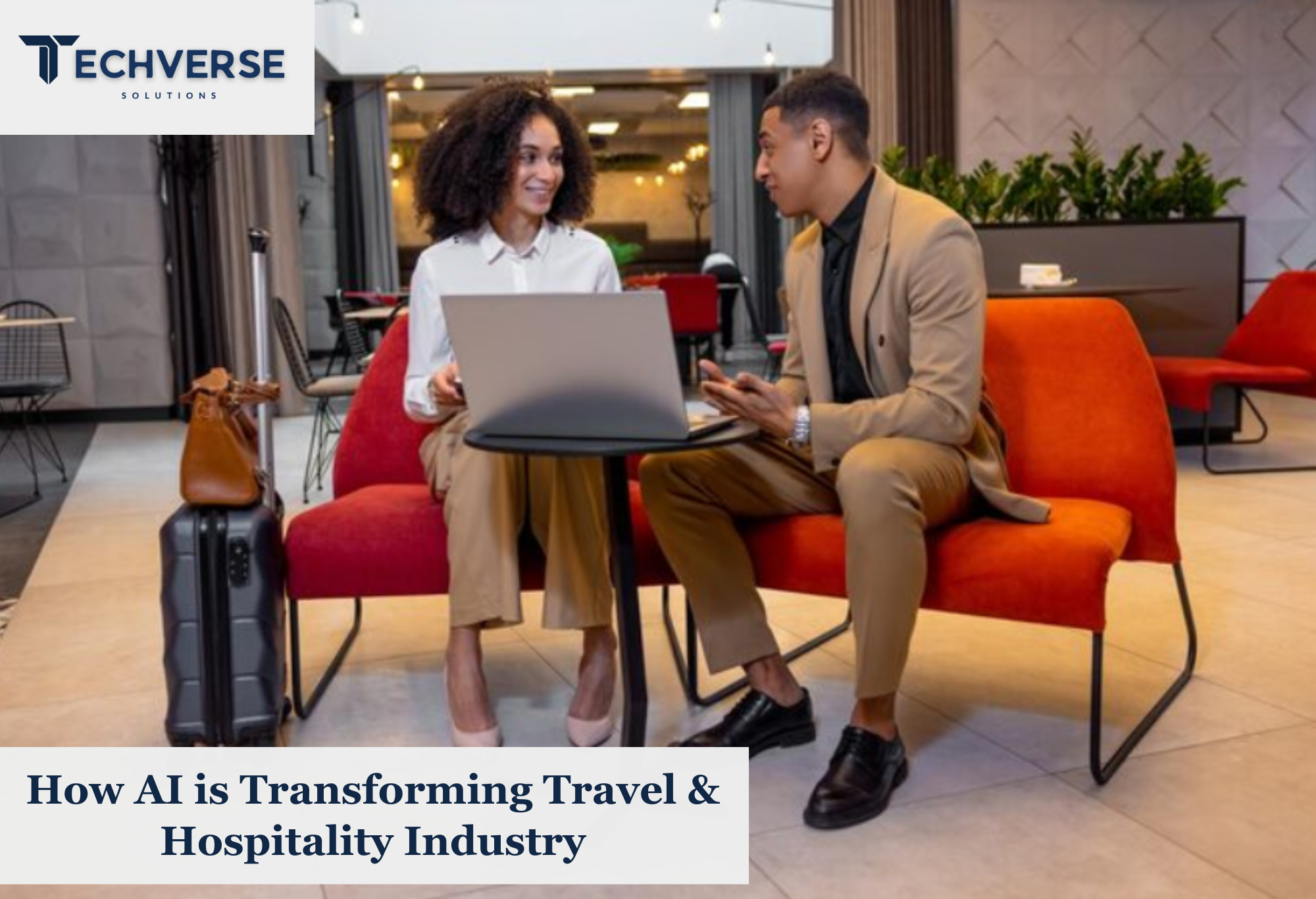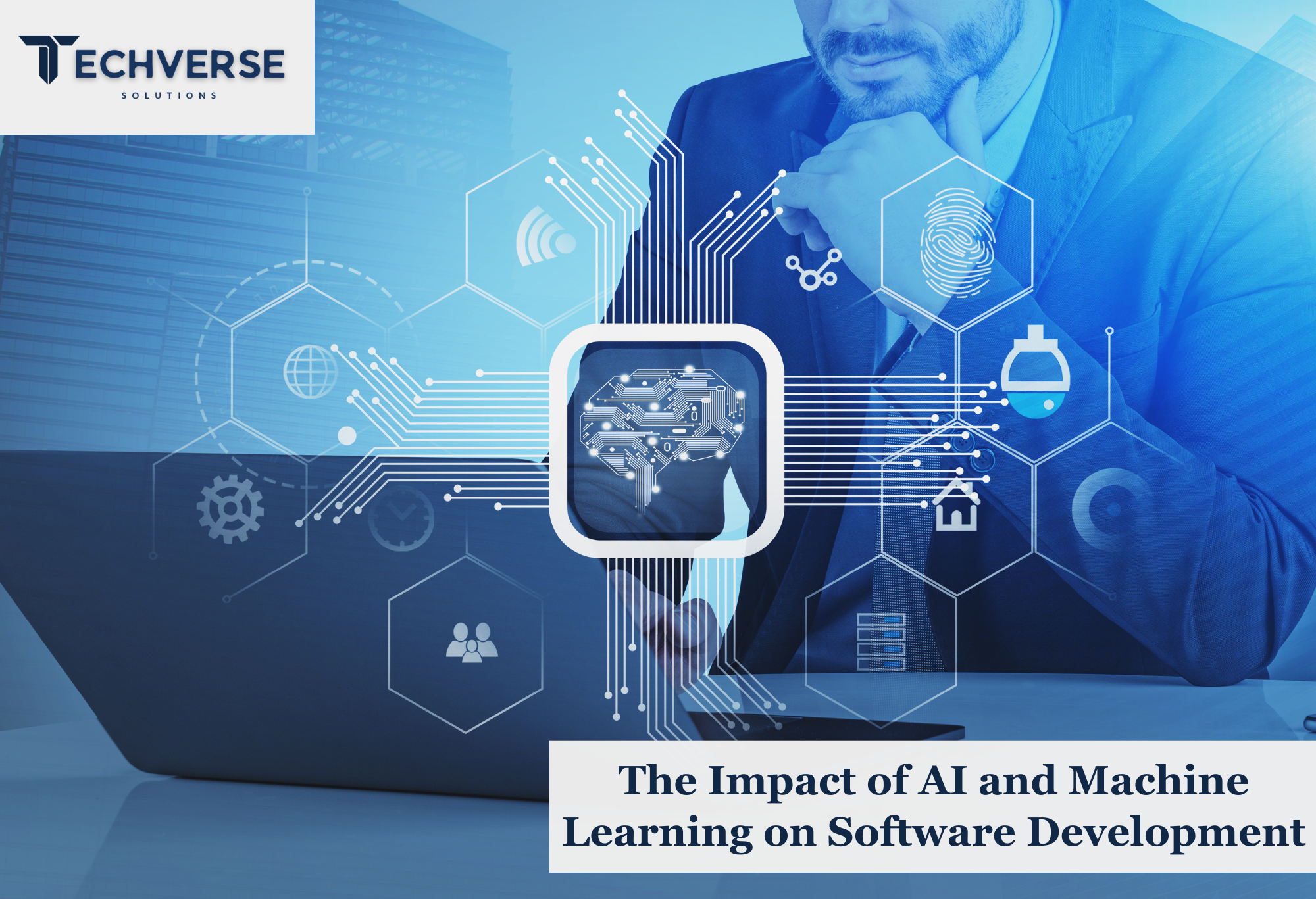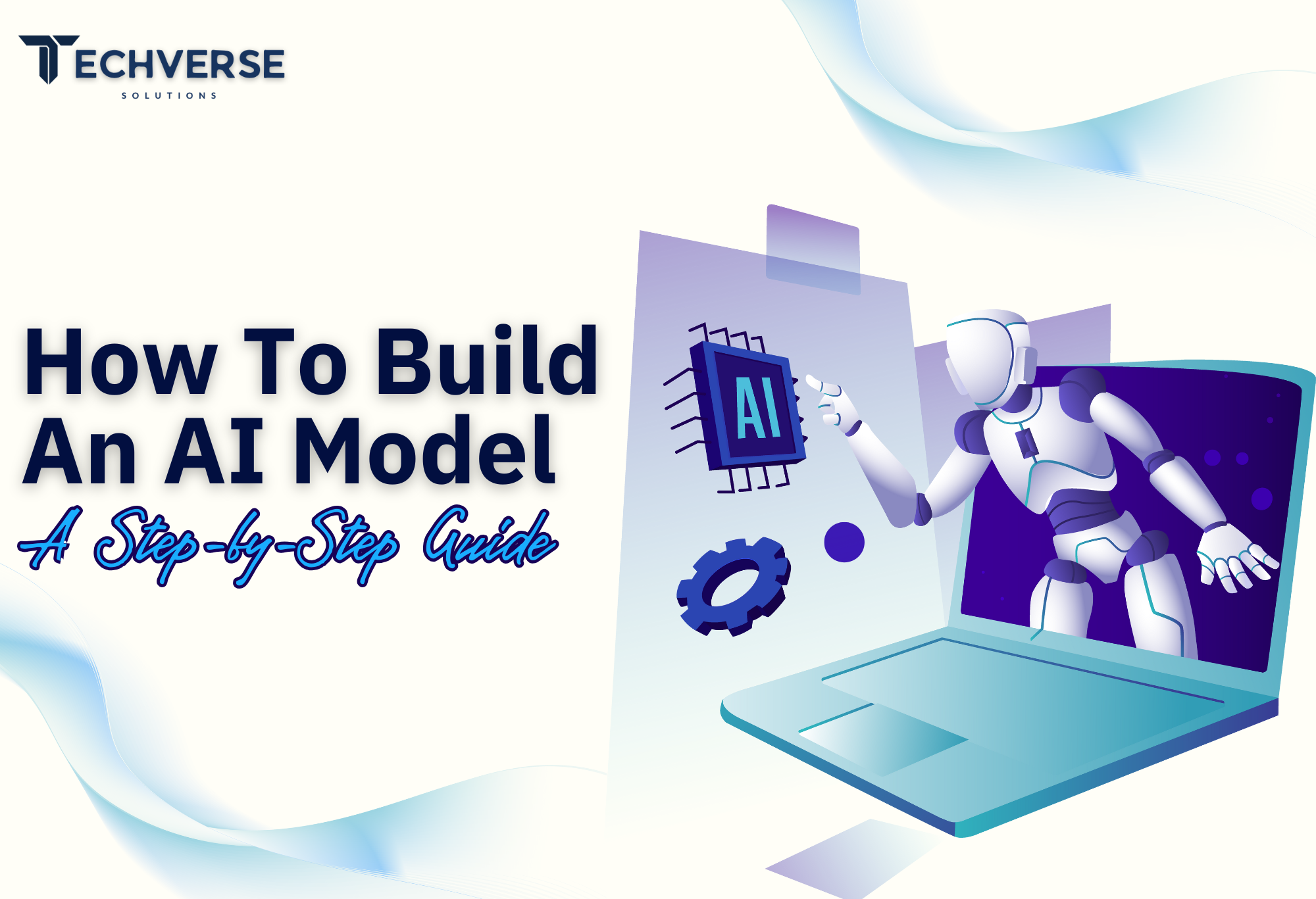AI/ML Development
AI in Logistics Industry: Key Benefits and Use Cases
Vandana
|Jul 15, 2025
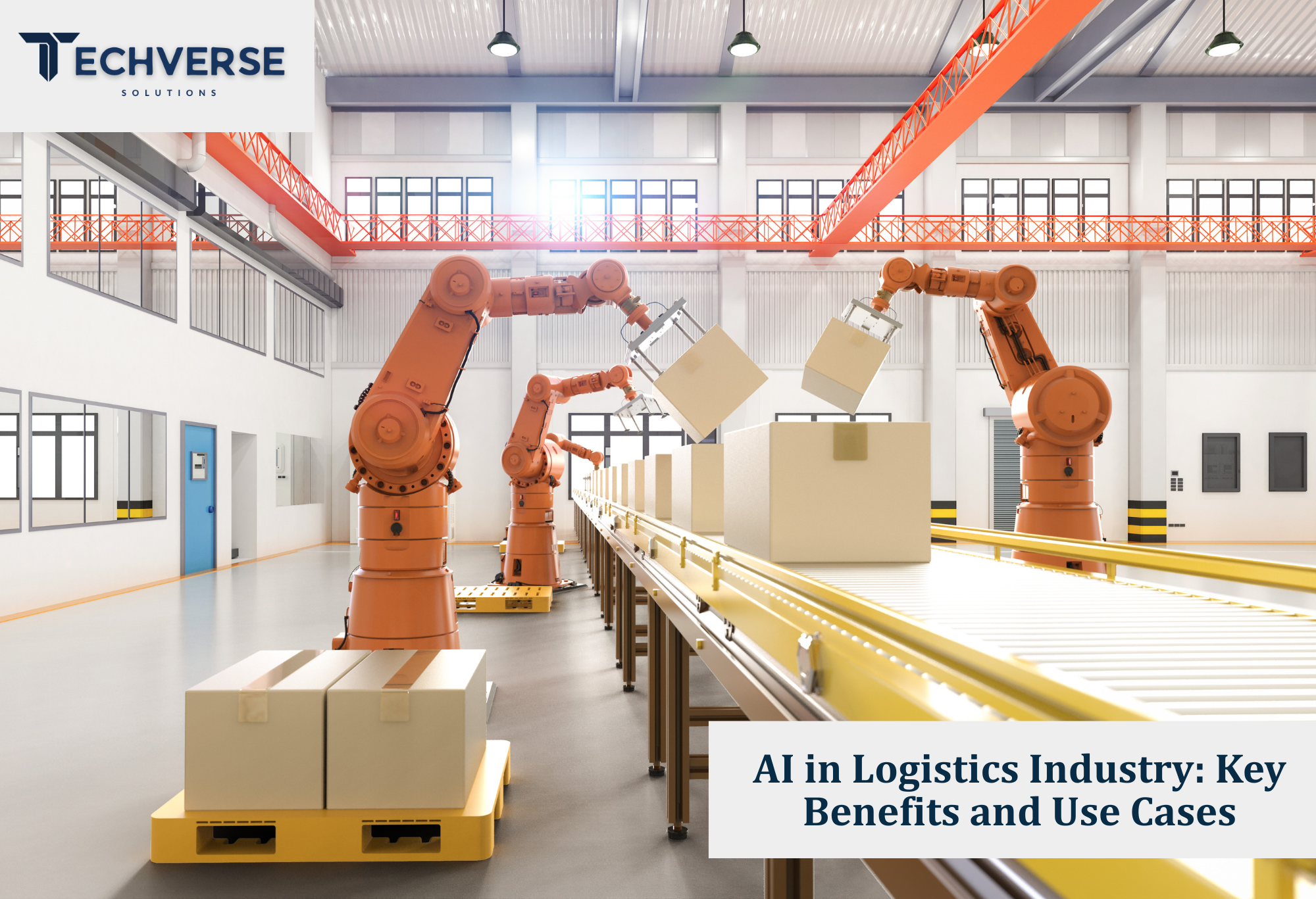
In today's fast-moving, hyper-connected world, logistics companies face constant pressure to optimize operations, reduce costs, and deliver faster than ever before. This is where Artificial Intelligence (AI) is changing the game. From real-time route optimization to demand forecasting and warehouse automation, AI is revolutionizing how goods move across the globe.
At Techverse Solutions, a leading AI Development Company, we help logistics businesses harness the power of AI through advanced Software Development Services tailored to their needs. Let’s explore how AI is transforming logistics, its core benefits, and real-world use cases.
Why the Logistics Industry Needs AI
The logistics industry deals with complex networks, unpredictable demands, high operational costs, and rising customer expectations. Old systems can't keep up, causing delays, wasted time, and lost chances. AI offers data-driven solutions that enhance visibility, automate decision-making, and predict outcomes with high accuracy.
That’s why more logistics providers are partnering with the Best Artificial Intelligence Development Company to build AI-powered systems that streamline operations and boost performance.
Key Benefits of AI in Logistics
1. Real-Time Route Optimization
AI algorithms can process traffic data, weather conditions, fuel costs, and delivery schedules to determine the fastest and most efficient delivery routes. This reduces fuel consumption, improves on-time delivery, and cuts operational expenses. Logistics giants like UPS and FedEx have adopted AI-based routing systems to save millions annually.
2. Warehouse Automation
AI-powered robots and automated systems enhance warehouse operations by reducing manual effort and errors. Machine learning models can track inventory in real time, organize stock more efficiently, and predict shortages or overstocking. This is especially helpful for eCommerce warehouses that handle thousands of products.
3. Predictive Maintenance
Equipment failures can halt operations and cost thousands in delays. AI can predict machine breakdowns by analyzing historical data and identifying patterns that signal wear and tear. Scheduled maintenance can then be done before issues become critical—saving time, money, and resources.
4. Demand Forecasting
AI uses past data, seasonal trends, and customer buying habits to accurately predict future demand. This helps companies adjust their inventory levels, optimize resource allocation, and minimize waste. Businesses leveraging AI Development Services for forecasting often see improved efficiency and reduced storage costs.
5. Improved Customer Experience
AI-driven chatbots and customer service tools can handle common queries 24/7, provide real-time tracking information, and offer personalized updates. This improves communication and boosts customer satisfaction. Natural Language Processing (NLP) tools are increasingly used for seamless interactions with customers.
Top Use Cases of AI in Logistics
Smart Supply Chain Management
AI enhances visibility across the entire supply chain, from sourcing to delivery. AI tools can track goods in real-time, assess supplier risks, and even suggest alternate routes or vendors when disruptions occur.
Autonomous Delivery Vehicles
Companies like Amazon, Waymo, and Nuro are experimenting with self-driving trucks and delivery robots powered by AI. These innovations aim to reduce reliance on human drivers and cut delivery times drastically.
Dynamic Pricing Models
AI systems can adjust pricing for freight and delivery services based on factors like urgency, distance, fuel prices, and market demand. These dynamic models help companies stay competitive and profitable.
Fraud Detection & Risk Management
AI detects suspicious activities in shipping patterns or invoices. This reduces fraud, improves compliance, and enhances security in the logistics process. Partnering with a Software Development Services provider can help integrate these features into custom logistics software.
Reverse Logistics Optimization
Managing product returns and exchanges is costly and complex. AI can streamline reverse logistics by analyzing reasons for returns, forecasting future return rates, and automating processing. This saves costs and improves customer retention.
Why Work with an AI Development Company
Implementing AI in logistics isn’t just about installing some software—it’s about building intelligent systems that can grow with your business. This is where working with a trusted AI Development Company like Techverse Solutions makes a difference.
We offer complete AI Development Services, including:
AI strategy and consulting
Custom AI software development
Integration with existing logistics systems
Scalable cloud-based AI solutions
Ongoing support and optimization
Whether you're managing a local delivery business or a global supply chain, our Software Development Services are designed to fit your goals and infrastructure. As one of the Best Artificial Intelligence Development Companies, we combine deep tech knowledge with real-world logistics experience.
Final Thoughts
AI is no longer a futuristic concept—it's a practical tool that logistics companies must adopt to stay competitive. From cost savings and automation to improved customer experience, the benefits are too significant to ignore. Real-time analytics, predictive models, and automation are changing how logistics works at every level.
Want to grow your logistics business?
Partner with Techverse Solutions — your go-to AI Development Company offering cutting-edge AI Development Services and Software Development Services that drive real results.
Let’s build a smarter logistics future, together.







